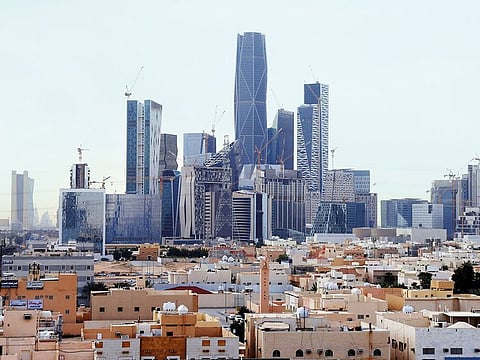Saudi Arabia’s new laws will give a makeover to the corporate landscape
The Companies Law will help launch a simpler joint stock company

Saudi Arabia has adopted an increasingly global and reformist mindset to transform into a highly competitive business powerhouse, in line with the government’s commitment to achieving the Vision 2030. Enhancing the business environment for the private sector is one of the top priorities, with the goal of increasing its contribution to GDP from 40 per cent to 65 per cent.
A regulatory framework for privatisation, transparent foreign investment rules and upcoming changes to corporate law will support the achievement of this goal. Historically, the Saudi economy has been dependent on oil revenues, and the government provided key services that are typically provided by private sector companies in other countries. The privatisation programme aims to unlock state-owned assets for the private sector and privatise selected Saudi government services, primarily through public-private partnerships or the sale and lease of state-owned assets.
Pulling in private interest
To support the increased role of the private sector, the Government enacted a new Private Sector Participation Law last year. This law provides a framework to regulate government divestments and partnerships between the Saudi government and the private sector on joint projects related to the provision of infrastructure and other public services.
The law addresses key issues such as the acquisition of land for projects, assignment and subcontracting by the private sector party, protections for private companies and foreign investors, remedies for breaches by the private sector party, the government’s step-in rights and dispute resolution. Implementing regulations have also been introduced, together with related governing rules.
These are key developments in the legal landscape that international infrastructure investors, in particular, should take into account when considering projects in the kingdom. More generally, Saudi Arabia has for years adopted a formal and transparent regulatory regime for foreign investment. This regime follows a sector-based approach to regulating levels of foreign investment in domestic companies.
Negative list
Foreign investment is prohibited in sectors on a negative list, which includes industrial and service sectors including oil exploration, drilling and production (subject to certain exceptions). Limits on foreign ownership also apply in certain other sectors, such as communications, insurance and reinsurance, healthcare and education, with corresponding minimum national ownership requirements. Complete foreign ownership is generally permitted for all other sectors.
In the meantime, a new draft Companies Law was published in 2020. Once enacted, the law will introduce a new concept of a simple joint stock company, which may be established by a single shareholder with no minimum capital requirements. This type of company would be subject to a lighter regulatory and corporate governance regime than a traditional joint stock company.
Wider scope for LLC
The draft law also permits limited liability companies to issue transferrable debentures or sukuks, which only joint stock companies can issue. Other changes encompass the potential introduction of codified directors’ duties for the first time for all types of Saudi Arabian companies, including limited liability companies, and express recognition of shareholder agreements.
Looking ahead, the overall investment climate is expected to continue its buoyant trajectory. Investment activities are likely to focus on non-oil sectors. New rules are expected to replace the negative list. A range of new laws - including the new Companies Law and the establishment of Special Economic Zones - are expected to be enacted.
Foreign investors should stay tuned for updates on the fast-evolving regulatory landscape with progressive changes, which present substantial opportunities for their entry to the Saudi Arabia market.
Sign up for the Daily Briefing
Get the latest news and updates straight to your inbox



